Blake Butler
http://www.gillesdeleuzecommittedsuicideandsowilldrphil.com/
Blake Butler lives in Atlanta. His third book, There Is No Year, is forthcoming April 2011 from Harper Perennial.
http://www.gillesdeleuzecommittedsuicideandsowilldrphil.com/
Blake Butler lives in Atlanta. His third book, There Is No Year, is forthcoming April 2011 from Harper Perennial.
At Triple Canopy, a podcast conversation between Joseph McElroy and Joshua Cohen, discussing one another’s work.
Kate Zambreno go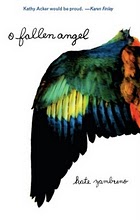 es for the throat. Or at least her language does, in the manner of those who came to wreck not by demanding, but by will. Her debut novel, O Fallen Angel, (which won the Chiasmus Press ‘Undoing the Novel’ contest) arrives in the grand spirit of Acker, Artaud, Burroughs, but where these are A and A and B, Kate is Z in full: her own, slick, squealy, and of another light. As well: Fun, funny, fucked, freaklit, surprising, terrifying, gorgeous. Her words are a meat we surely want more of, quickly.
es for the throat. Or at least her language does, in the manner of those who came to wreck not by demanding, but by will. Her debut novel, O Fallen Angel, (which won the Chiasmus Press ‘Undoing the Novel’ contest) arrives in the grand spirit of Acker, Artaud, Burroughs, but where these are A and A and B, Kate is Z in full: her own, slick, squealy, and of another light. As well: Fun, funny, fucked, freaklit, surprising, terrifying, gorgeous. Her words are a meat we surely want more of, quickly.
On the event of her book’s release (which you can pick up now through SPD) (and read an excerpt of at The Collagist) (and see read live in Chicago this Saturday at Quimby’s), Kate and I spent some time discussing via email her new book, her influences, art, language, terror, cliches, Playboy, Bacon, body fluids, and all things therein.
* * *
BB: The copy of the back of O Fallen Angel says it was inspired by Francis Bacon’s Three Studies for Figures at the Base of a Crucifixion. The images in that painting are quite striking, esp. in that I didn’t look it up until after the text. The orange and white contrast, with the odd body shapes on pedestals as if vivisected and mutated bits of humans stuck on gross smooth forms really resonated in retrospect with the three rotating voices of your text, and made me realize a lot about it in seeing, applying the imagery to the residual effect of your words. I wonder if you could talk about how that image struck you as a way of opening the door here, what effect it had in a process sense, and perhaps how it continued to inform the structure or tone of the book.
Kate Zambreno: I’ve been really haunted by that triptych. For a while I lived in London, really when I first started writing I worked in fiction at Foyle’s bookshop and read all of this experimental fiction for the first time—Ann Quin and Elfriede Jelinek and all the Peter Owen books, Jane Bowles, Anna Kavan—and ran the cult fiction section. I would go to the Tate Museums to the Francis Bacon room in the Tate Britain where they had that first major triptych. I worshipped and gawked at that first triptych, that orange gruesome horror it filled me with such violence and ecstasy. Those three gruesome distorted bodies, the open mouths in Bacon, the silent scream. I’m really interested in the silent scream how we are muted in society, Bacon’s mouths, Helene Weigel’s mouth wide open screaming an empty loss in Mother Courage, Munch’s Scream. I guess that’s some of what I was writing towards in O Fallen Angel, what I’m really always trying to write towards, those who are dumb and deaf but inside writhing with unwordable agony, and are diagnosed as selectively mute, those who lack language so they commit violent acts, they are only given language that is banal and well-behaved , the need to burn burn burn but they cannot so they set fire to themselves, they self-immolate (as one of my characters does literally and the other does symbolically). The spectacle of this, of the wound, to borrow an idea from Mark Seltzer’s cultural study of the serial killer. And we gather around this wound, this trauma in our talk-show society, but then we also suppress it, the anguish, sadness, we medicate it. I also really love how much a reader Bacon was and we both share a passion for the Greeks, the Greek tragedy really inspired O Fallen Angel, especially The Oresteia, the choruses threaded, some of the imagery, and Malachi is a Cassandra figure, ranting, raging, never believed.
1. New online edition of Gigantic Magazine is now live for May.
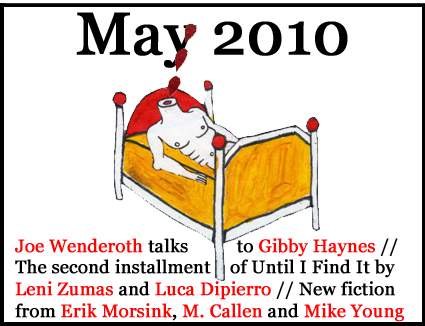
2. DC’s exhibits 50 treehouses
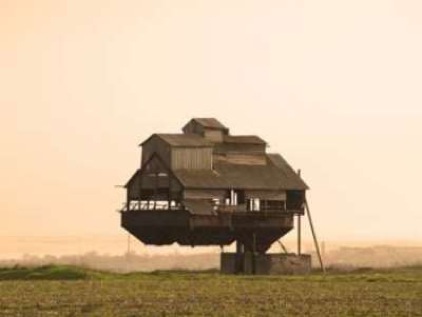
3. Mark Baumer is walking and blogging across America from coast to coast (for real, he just started this weekend)
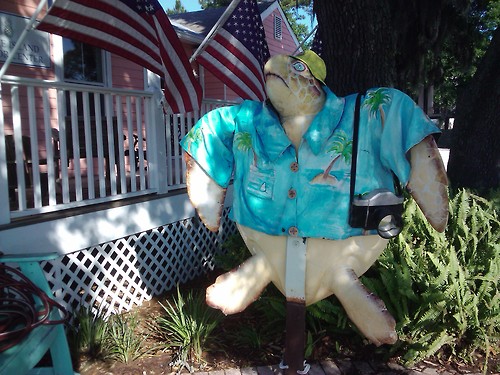
4. Amelia Gray’s constraint writing & media for this week at Everyday Genius
In celebration of the paperback release of his latest novel Castle, the excellent J. Robert Lennon is giving away iPad and PDF versions of his Video Game Hints, Tricks, And Cheats: Essays, Exercises, Riffs, Gags, And Other Incidental Writings, “a collection of random, mostly comic writing from the past dozen years, including pieces published in Harper’s, Granta, The Los Angeles Times, McSweeney’s, and elsewhere.”
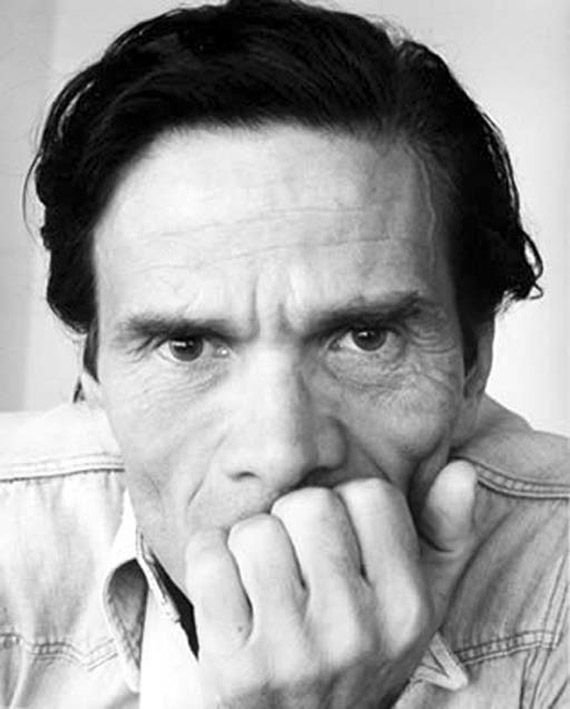
“One should never hope for anything.”
“If you know that I am an unbeliever, then you know me better than I do myself. I may be an unbeliever, but I am an unbeliever who has a nostalgia for a belief.”
“But I do not believe in a metaphysical god. I am religious because I have a natural identification between reality and God. Reality is divine. That is why my films are never naturalistic. The motivation that unites all of my films is to give back to reality its original sacred significance.”
“When I make a film, I shift into a state of fascination with an object, a thing, a fact, a look, a landscape, as though it were an engine where the holy is about to explode.”
“I am a murderer but I am a good person.”
“Don’t talk to me of the sea while we are in the mountains.”
“If I have access to an administrative council or a Stock Market maneuver, that’s what I use. Otherwise I use a crowbar. And when I use a crowbar, I’ll use whatever means to get what I want.”
“I say let’s not waste time placing nametags here and there. Let’s see then how we can unplug this tub before we all drown.”
Word on an exciting new project from Ben Segal:

Dear Internet,
We are very excited to announce the coming existence of The Official Catalog of the Library of Potential Literature. The Catalog is to consist of a series of blurbs/short descriptions of books that do not exist. In order to compile that Catalog, we have asked many of the writers, theorists, and text-makers we most admire to imagine that they’ve just read the most amazing book they’ve ever encountered and then write a brief blurb about the imagined text.
As many of you know, The phrase ‘potential literature’ is highly associated with the Oulipo group. We choose to use the phrase here because, as the Oulipo says, their project, properly, is to conceptualize forms and potential works: not necessarily to bring them into being. Literature is potential literature when it is that shimmering non-work of total possibility. Though Official only by way of titular hyperbole (itself, like the blurbs contained within, a kind of unfulfilled and unfulfillable promise), the Catalog will evoke a library of wonderful–maybe even impossible–books; books that, in spite or even because of their non-existence, excite and fascinate. Each paragraph will be the promise of the unopened book in the moment before reading.
1. Flavorwire posts The Ugliest, Most Beautiful Paintings Ever Made
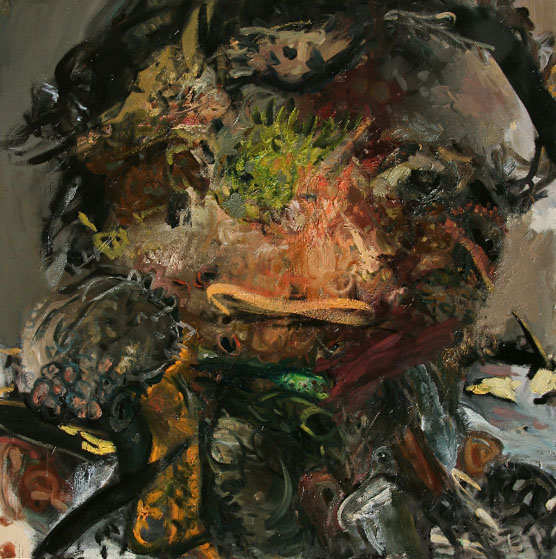
2. Mike Kitchell posts a compelling list of his Top 50 Movies:
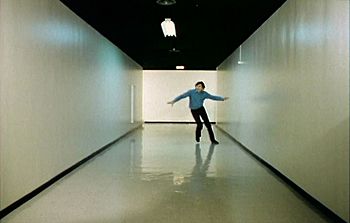
3. Penguin announces Central European Classics series.
4. The master Madlib makes a beat